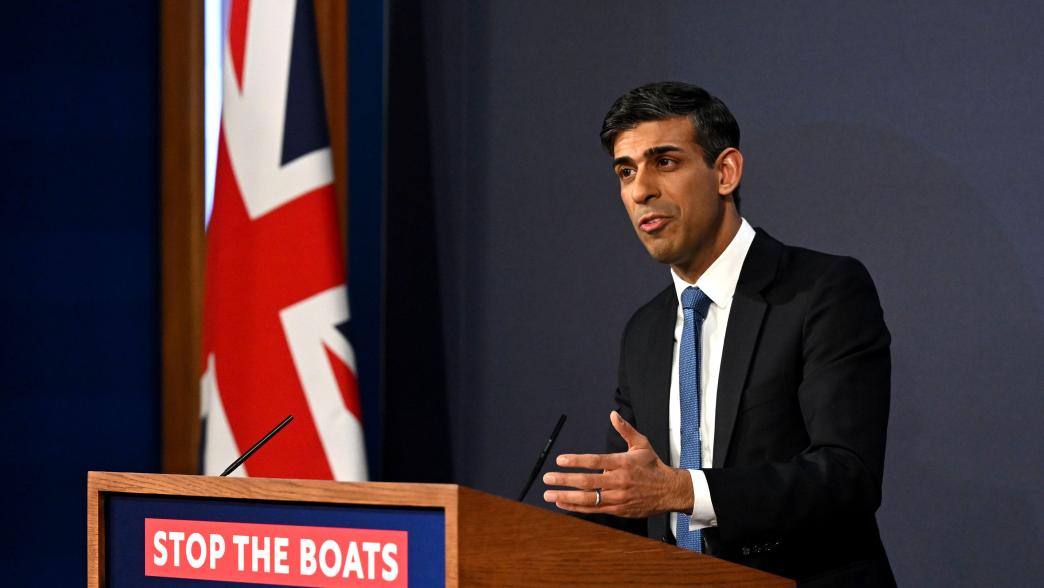Departures of MPs and ministers add to the sense of drift in Sunak’s government
MPs standing down make achieving anything significant in this parliament difficult.

Sixty-three Conservative MPs will not stand at the next election, while several ministers have already left. This only adds to the sense of a government running low on steam, say the IfG’s ministers team.
Over the weekend, Tim Loughton became the 63rd MP from the governing party to say he is stepping down at the next election – and the 100th from across the Commons. Before that milestone was reached Graham Stuart resigned as energy minister, following Robert Halfon and James Heappey, who left the Department for Education and the Ministry of Defence respectively in March. And the Mark Menzies scandal has seen yet another Conservative MP lose the party whip.
These ongoing departures are coupled with a low level of parliamentary activity: beyond the Rwanda bill and the planned free vote on the smoking-ban legislation, much of MPs’ time recently has been used for backbench business due to a lack of government legislation in the Commons. The sense that the government is now drifting is inescapable.
Departing MPs will take experience with them
On top of the 100 MPs who are standing down, a further 23 have already departed during the parliament, some for other jobs and some in disgrace. This means around a fifth of the 650 MPs elected in 2019 will have left parliament before a single vote is cast at the next election.
This level of turnover may well reflect the polls pointing towards a change of government and Conservative MPs, three-quarters of whom have never been in opposition, choosing now to make their exit. This is far from unprecedented, and indeed both 1997 and 2010 saw even greater levels of departures: ahead of the 2010 election a record 149 MPs stood down, mainly from Labour (though more announcements are expected this year, as polling day nears).
But it also reflects wider changes to parliamentary life. Careers in Westminster have become shorter, and the nature of the job has changed too, most recently as MPs report having to deal with more constituency casework since the pandemic. 7 www.politicshome.com/thehouse/article/scrutiny-scarcity-parliament-commons-lords The level of vitriol directed at those in public life has also worsened. Many MPs cite the difficult working environment in Westminster, 8 www.theguardian.com/politics/2023/jul/04/mhairi-black-snp-mp-to-step-down-next-general-election threats to their safety, or that of their families, as reasons for walking away from the job.
Those leaving office take lots of experience with them. Among those departing of their own volition are more than 50 former ministers, nine select committee chairs, a deputy speaker and several former party leaders; others will lose their seats when the election finally comes. This means the next parliament will include a significant number of first-time MPs, all of whom will take time to get to grips with their roles.
Ministers leaving towards the end of the term means little gets done
As Westminster watchers wait for the election, inside government things are already slowing down – despite there being up to eight months until the prime minister must call the vote. Some of the ministers to already stand down – including Ben Wallace, James Heappey and Robert Halfon – may have done so with one eye on the post-government job market, aware it may soon be flooded with ex-politicians, and wary of rules on the requisite ‘cooling off periods’ after leaving office.
Other ministers have quit their posts even when they aren’t leaving the world of politics. Graham Stuart resigned as energy minister on Friday, but plans to stay on as an MP; five of his colleagues did the same ahead of the November reshuffle. Many will have looked at the opinion polls and the boundary changes and realised that they’d prefer to spend time trying to hold onto their seat than serving in government.
But whatever reason ministers have for leaving their roles, their doing so disrupts the running of government between now and the election. Civil servants face abandoning their previous work if their new minister brings new priorities. And the new ministers themselves will have precious little time to get on top of their brief and develop effective relationships – which former ministers have told the IfG generally takes about two years – before election campaigning begins.
And as Hilary Benn told us, even if the individual minister is keen to hit the ground running, they may find that the government overall is “running out of steam a bit” at this stage of a parliament: “there’s a huge difference from coming in as a minister in a new government, with a manifesto.”
This sense of drift comes at a bad time for Rishi Sunak
In the context of poor polling and slow progress on his election pledges what Rishi Sunak needs most of all as the country nears an election is some sense of progress – be it on his flagship Rwanda or smoking policies, both in the Commons this week. The steady of drip of his colleagues’ departure announcements offers the opposite, and adds to a sense that for many MPs the election is a foregone conclusion. That is going to make achieving anything significant in the remaining time left in this parliament very difficult.
- Topic
- Ministers
- Political party
- Conservative
- Administration
- Sunak government
- Legislature
- House of Commons
- Publisher
- Institute for Government